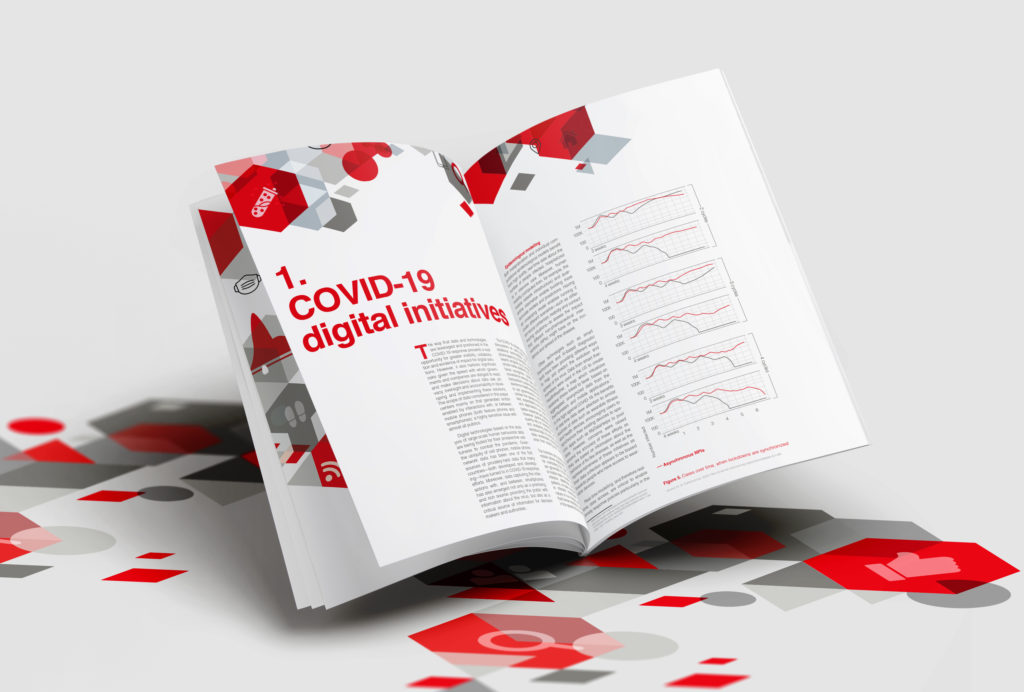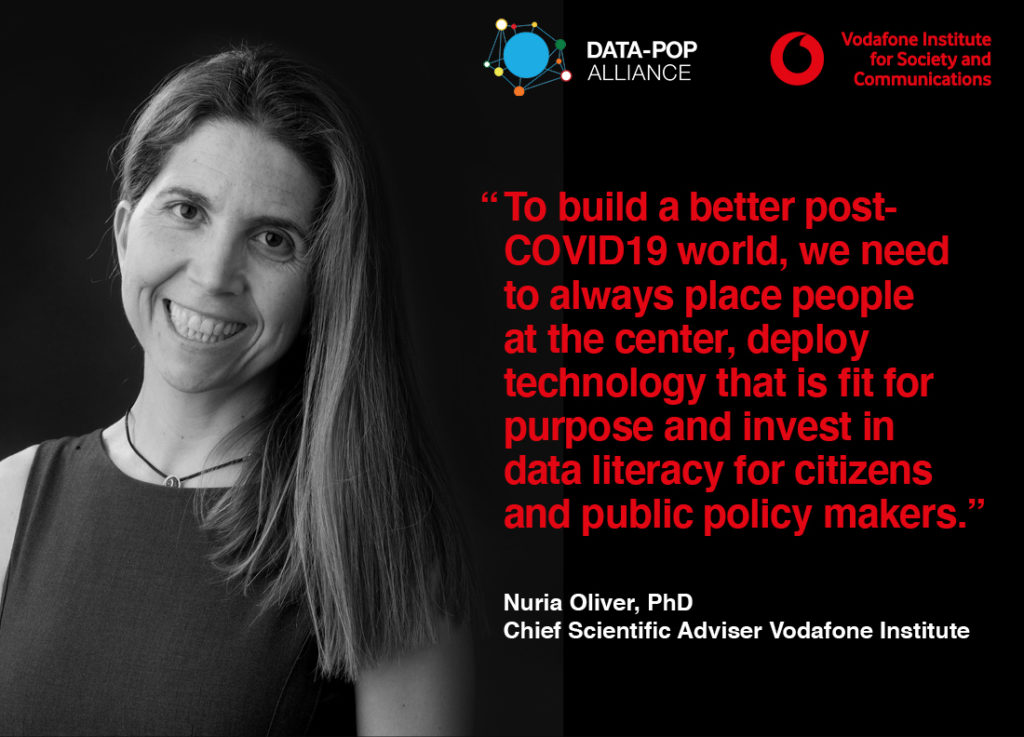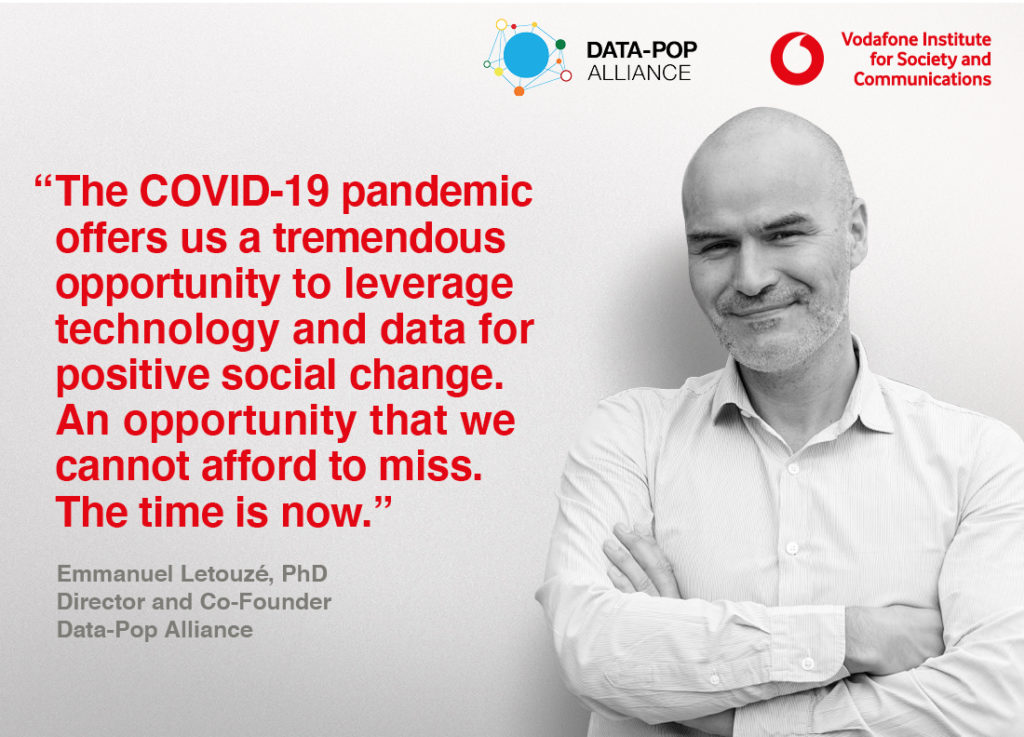Digital technology and data insights are essential to fight COVID-19, but they should be applied in ways that reflect and promote equity, efficiency, and sustainability.
The COVID-19 pandemic has become an unprecedented global health crisis in 2020 – and it will remain a challenge for quite a while. Since its beginning, many governments, public institutions and companies have developed initiatives leveraging digital technology and data in support of response efforts to the severe impact of the illness on individuals and societies as a whole.
Those initiatives range from identifying hotspots, understanding how effective containment policies are, up to tracing of contacts. The Vodafone Institute for Society and Communications asked Data Pop Alliance to create a policy paper that researches how digital technologies and data were applied to fight the Coronavirus. The paper summarizes main debates and questions around these initiatives to reflect on their usefulness, implications, limitations, risks and their requirements. Furthermore, it explores how the learnings of the first wave of the pandemic could provide an opportunity to use data more efficiently in the future to build back better. It builds on the paper “Sharing is Caring: Four Key Requirements for Sustainable Private Data Sharing and Use for Public Good”, that Data Pop Alliance and the Vodafone Institute published jointly in 2019.
COVID-19 as an opportunity for positive social change
Digitisation and its importance as well as its progression increased enormously this year. The pandemic has revealed how crucial digital technologies were to self-isolate effectively while going on with our daily lives – from video chats with our doctors, digital homeschooling to working from home. But the more we are relying on digital technologies and data the more essential it is that data and technology are fit for purpose and that people are put in the center. The pandemic is therefore a huge opportunity to use data and technology for positive social change.
The main key questions are:
- How to leverage data to enable several parts of society making informed decisions?
- How to ensure access for all citizens?
- How to foster collaboration between the public and private sectors as well as civil society?
- How to combat disinformation?
- How to avoid further polarization of societies?
The post-COVID world
The pandemic has shown: Now it is up to national governments and supranational organizations, science, business and citizens to apply learnings and do (even) better – right across the globe, and not just for certain, mostly privileged, societies.
But to achieve that, it is inevitable to pay attention to four main elements: context, education, high-quality data, and communication and trust. The last one especially focuses on the responsibility of social media companies and platforms which have to provide safeguards from theories. Theories that increase severe trust issues with governments and science.
Let’s start now to build a fairer post-COVID world!
Click on the button to read the full paper and find out more about recommendations for a post-COVID world.





![M002 - Feature Blog Post [WEB]](https://datapopalliance.org/wp-content/uploads/2025/10/M002-Feature-Blog-Post-WEB.png)





